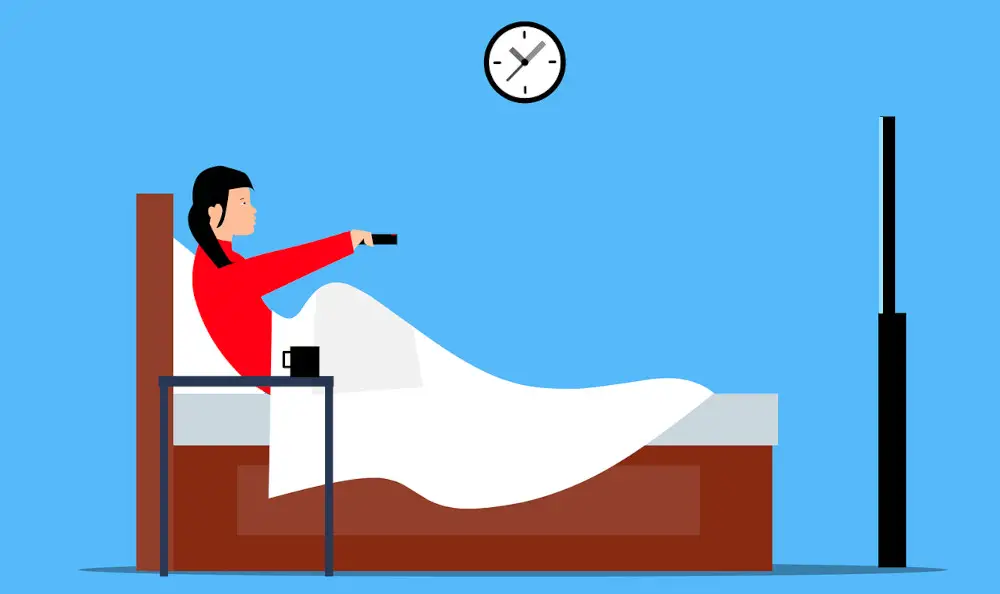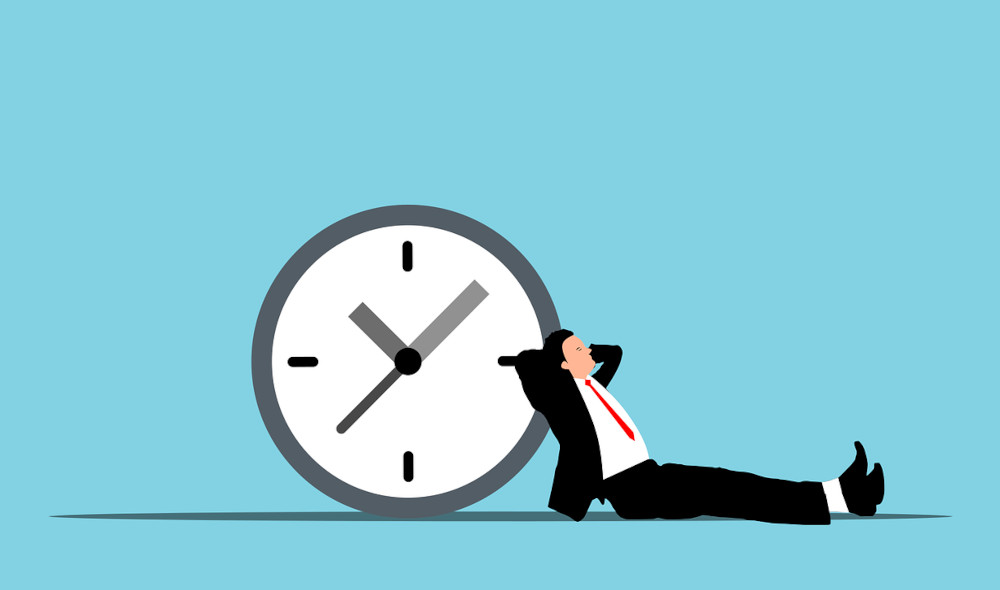Sophia was bored one summer afternoon. School was out, her friends were away on vacation, and she had nothing to do.
“I’m so bored,” she thought, idly scrolling through social media. A notification popped up – her friend Tina was posting videos from a party across town. “That looks fun…maybe I’ll just go check it out.”
Before she knew it, Sophia found herself at a wild party full of kids drinking and doing drugs. Just wanting to fit in and not seem lame, she tried some things she never thought she would.
One bad decision led to another, and by the end of the night, Sophia’s life had been forever changed by her idle hands.
Unfortunately, this is an all-too-common tale. The Bible warns us time and time again about the dangers of idleness and the slippery slope of sin it can lead us down.
Let’s dive into what the Word has to say about idle hands and how we can avoid falling into that trap.
The Biblical Context

The Book of Hebrews admonishes believers to be diligent and hard-working, cautioning against slothfulness:
“11 And we desire that every one of you do shew the same diligence to the full assurance of hope unto the end: 12 That ye be not slothful, but followers of them who through faith and patience inherit the promises.”
Hebrews 6:11-12 (KJV)
biblegateway.com
The Greek word translated as “slothful” means lazy, indolent, or idle. It’s the opposite of the diligence and hard work God calls us to.
Proverbs 12:24 (ESV) says:
“The hand of the diligent will rule, while the slothful will be put to forced labor.”
biblegateway.com
Throughout Scripture, we see idleness and laziness portrayed in a negative light. On the other hand, there are countless examples of God rewarding those who work hard and stay diligent.
From the Proverbs 31 woman to the parable of the talents, the Bible makes it clear – idle hands are dangerous.
The Consequences of Idle Hands

So what exactly are the risks of idleness according to the Bible? Let’s explore a few:
Laziness and Lack of Spiritual Growth
When we have too much idle time on our hands, laziness and complacency can easily creep in.
We stop being productive, stop working towards our goals, and stagnate spiritually. As the saying goes, “idle hands are the devil’s playground.”
The Apostle Paul instructed the Thessalonians:
“For even when we were with you, we would give you this command: If anyone is not willing to work, let him not eat.”
2 Thessalonians 3:10 (ESV)
biblegateway.com
Idleness breeds laziness, and laziness hinders our walk with God.
Temptation and Sin

An idle mind really is the devil’s playground. When we’re not occupied with productive activities that strengthen us spiritually, we leave room for temptation to take root.
Maybe that means idly browsing social media and being exposed to harmful content. Maybe it’s watching too much TV and filling our minds with ungodly things.
Or maybe the temptation is simply to indulge our fleshly desires when we have nothing better to do.
Just as David’s famous sin with Bathsheba began with him idling around instead of being where he was supposed to be (2 Samuel 11), our idle hands can quickly lead us into sin if we’re not careful.
Wasted Potential

At the end of the day, one of the biggest dangers of idle hands is the wasted potential and missed opportunities that come with it.
God has an amazing purpose and plan for each of our lives, but laziness and idleness keep us from walking in it fully.
Jesus said:
“Occupy till I come.”
Luke 19:13 (KJV)
biblegateway.com
In other words, we’re meant to be hard at work doing what He’s called us to do until His return.
Idleness robs us of the incredible sense of purpose, growth, and accomplishment that comes from laboring diligently for the Lord.
The Importance of Hard Work

In stark contrast to the consequences of idleness, the Bible highlights the tremendous blessings and importance of hard work:
- Diligence brings honor and promotion. (Proverbs 12:24, 22:29)
- Hard work allows us to reap a harvest. (Proverbs 10:4, 2 Timothy 2:6)
- We can become self-sufficient through diligence. (1 Thessalonians 4:11–12)
- Our work is a form of worship to God. (Colossians 3:23-24)
Whether in the workplace, the home, the church, or our personal walks with God, the Lord calls us to a lifestyle of industriousness and rejects complacency.
As the example of the early church shows in Acts 20:34-35, believers should embrace the beauty and blessing of hard work.
Key Takeaways
Here are some key things to remember about the biblical perspective on idle hands:
- Idleness breeds laziness and a lack of spiritual growth.
- Free time leaves us vulnerable to temptation and sin.
- Idle hands waste our God-given potential and purpose.
- Hard work is blessed, and diligence brings promotion.
- Our labor can be an act of worship when done for the Lord.
Don’t let the summer slide or a free weekend turn into a slippery slope of idleness and sin. As Ephesians 5:16 (NIV) exhorts,
“Make the most of every opportunity.”
biblegateway.com
Actively look for ways to put your hands to good use and redeem the time through productive, God-honoring activities.
Conclusion
Idle hands might seem harmless at first, but as we’ve seen, they can quickly take us down a slippery slope toward sin, stunted growth, and wasted potential.
May we be a people who enthusiastically embrace the biblical principles of industriousness and reject the trap of idleness and laziness.
Let’s be doers of the Word and occupy until Jesus returns!
Frequently Asked Questions
Q. Should Christians ever rest or take breaks?
A. While the Bible clearly frowns on laziness and idleness, it doesn’t promote burnout either.
Even God rested on the seventh day after His work of creation (Genesis 2:2-3). The principle of working six days and resting on the Sabbath is woven throughout Scripture.
Rest, relaxation, and rejuvenation aren’t the same as idleness and laziness. Christians should absolutely take breaks and set aside time for appropriate leisure activities that refresh them physically, mentally, and spiritually.
Just be intentional about it rather than slipping into idleness by default.
Q. Do I have to be constantly working and productive every second?
A. No, that would be unhealthy and unrealistic. The danger lies in laziness, complacency, and having way too much unoccupied idle time – not simply in resting or taking breaks as needed.
The goal is to develop diligent, disciplined habits that keep you productive, motivated, and spiritually growing while still leaving room for adequate rest, recreation, and time with loved ones.
It’s about being a good steward of your time rather than letting idleness master you.
Q. What if circumstances beyond my control have led to a season of idleness?
A. There’s a difference between willful laziness and idleness forced upon you by factors outside your control.
If you’ve lost a job unexpectedly or are going through a difficult transition or situation, don’t beat yourself up.
Do what you can to remain productive where possible, but also allow for grace. Trust that God will renew your strength and open up new doors of opportunity in His timing.
The key is having the right heart posture of diligence rather than embracing idleness as a lifestyle.






